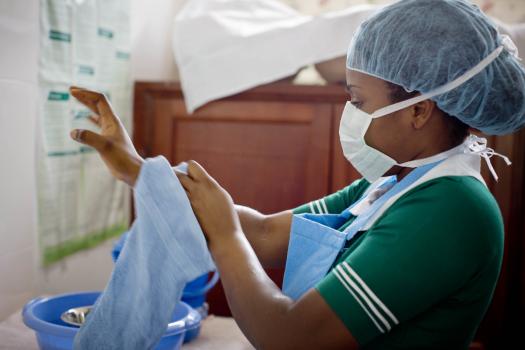Clean Hands (and More!) in the Time of COVID-19
This story originally appeared in USAID on Medium.
When the novel coronavirus emerged as a global pandemic, handwashing entered the spotlight as an important way to limit the spread of infectious disease.
Around the world, one of the main pieces of advice to prevent the spread of COVID-19 is the same: Wash your hands!
Proper handwashing with soap and water represents the first layer of defense against COVID-19 and other infectious diseases. But many places around the world cannot practice this behavior due to a lack of access to safe water, sanitation, and hygiene (WASH) resources. Health care workers, families, and students cannot practice safe handwashing due to shortages of running water or soap in homes, health care facilities, and schools.
It is critical for frontline health workers and facilities to have access to safe water and soap in order to deliver high quality care.
Health care facilities without clean water access are more likely to contribute to the spread of infectious diseases, including higher numbers of infections from childbirth and other essential care procedures. Patients are also less likely to seek care at a health facility if they feel the environment is unsafe due to a lack of WASH services.
USAID provides access to clean and reliable water in health care facilities to ensure safe and sanitary conditions for families and communities seeking care, while also educating them about the role of handwashing in limiting the spread of infectious disease.
Click here to read the full story.


